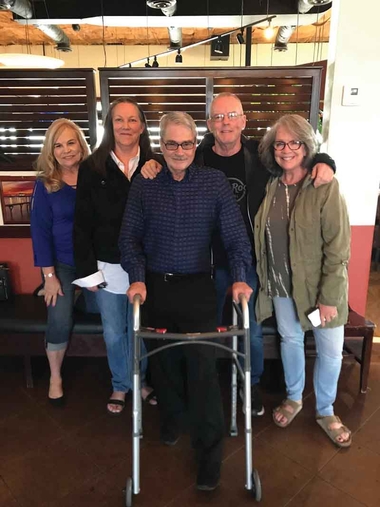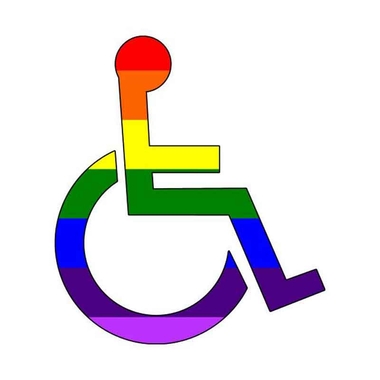It can happen to anyone

by Robin Dorner
Editor in Chief
It can happen to you, or anyone, in an instant. Becoming disabled immobile, unable to care for yourself or confined to home due to disability.
“I never thought this would happen,” said Gary Miller. “It did though. I was so psychologically and emotionally damaged. It was quite a journey.”
Miller says now, he embraces his disability and wants to be a voice for others. Unable to find a good support group locally, he started a Facebook group for disabled members of the LGBTQ+ community (@OKCDisabledGays).

“I just wanted a forum for the LGBT disabled community here in OKC, but what I didn’t expect that disabled gays from all over the world would see this site. Men and women from Serbia to South Africa found my site.
“My site is for emotional support—it is not a pick-up site,” he firmly stated.
“The biggest part of my disability now is just being mobile. I’ve had a lot of help from friends and family. I’ve gone from a wheelchair to a walker, and now try using a cane. It’s so scary as I progress because I’m afraid of falling. But I want to be able to walk on my own.
“It’s hard to go to a grocery store because I can’t carry bags of groceries yet. I can’t do laundry because I can’t carry a laundry basket. It’s the simple tasks that are the hardest for me.”
Mobility is not an issue for some people who are disabled like Jenny Kade from Arkansas.
“Oh, I get around just fine,” said Kade. “But I have absolutely disabling fears and phobias that keep me indoors most of the time.”
Reluctantly, she shared that she has agoraphobia and OCD (obsessive-compulsive disorder).
“Agoraphobia is much more complex than most people think,” she said. “It’s not just a fear of the outdoors. I fear getting trapped somewhere when I’m out; trapped by people, buildings, not being able to find my way home. It’s a paralyzing fear, and the sad thing is that people just think we are ‘crazy.’
“It’s sad because I am truly disabled with these mental illnesses. I spend most of my time at home washing my hands, flipping a light switch and other repetitive things I feel I must do incessantly. I can’t feel comfortable unless these things are a certain way. Try to stay gainfully employed doing that all the time.”
Often, mental illness is not looked at as a disability. A Pew study revealed 48 percent of people would not “welcome” any of the mental health facilities or people into their neighborhoods.
“I am restricted in many ways,” Kade added. “I invite people over who I’m interested in dating. I can at least be around people if they are not too annoyed by the OCD. But many of them are just looking for sex, be they male or female. The men are just more abrupt and rude about it, but some women are the same way.
“It’s hard to find friends or relationships because most of my socialization is online through social media. It’s really hard to find meaningful relationships there, but some of the support groups are good to find people who can relate even if they are in a different city.”
For Miller, he is more restricted by mobility and transportation. For a while, he was unable to drive.
“I am, at least, able to drive now, so that helps.”
Miller said the first time he felt accepted was at a #YesLoveOKC meeting. There were people from all walks of life just yearning to be accepted.
“I finally got the courage to go to a gay bar here—in a wheelchair. I was stared at the whole time. I do understand why. It’s not a sight you see every day!”
Copyright The Gayly – December 3, 2018 @ 7:20 a.m. CST.





